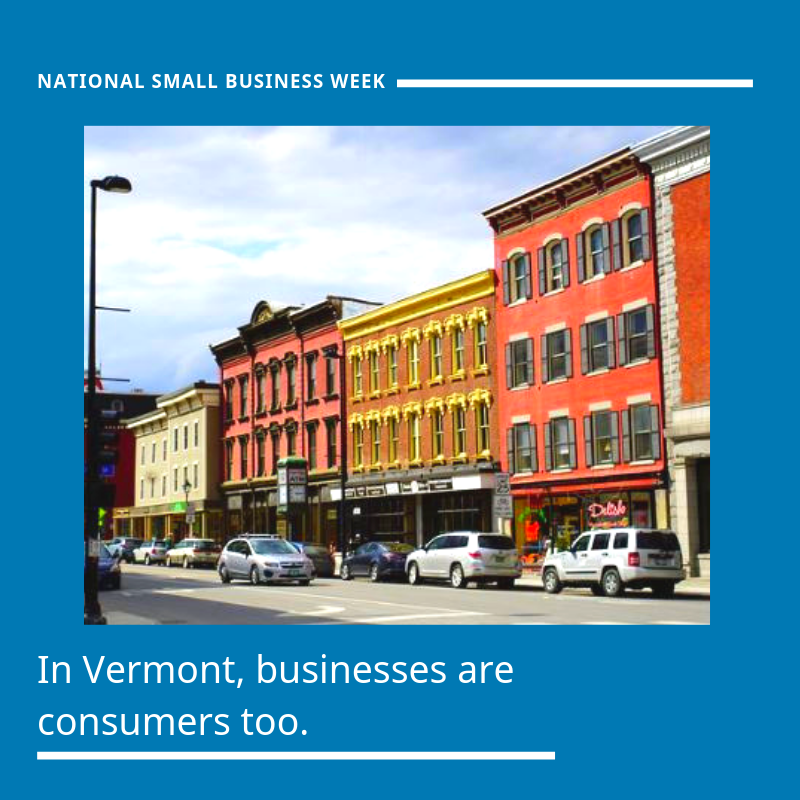
Businesses can be consumers too! Vermont is unique in that our Consumer Protection Act defines “consumer” to include businesses that are the consumer in a transaction, such as when purchasing goods or services that are not for resale (9 V.S.A. § 2451a(a)). If your business needs help, contact our Small Business Advocate by emailing AGO.SmallBusiness@vermont.gov or calling 800-649-2424.
Here are some recent examples of how the Small Business Advocate has helped Vermont business consumers:
- Small business paid a listing service for over 5 years of online advertising when it realized that advertiser had published the wrong phone number for the small business. The listing service offered to refund the small business $450 to resolve the issue, but this was significantly less than what the small business had paid for the service. Our Small Business Advocate reached out to the listing service on the small business’ behalf and was able to secure a refund of more than $4,000 to recapture the costs paid for the service.
- Small business attempted to cancel their lease for credit card processing equipment (the lease was entered before new protections took effect on July 1, 2018), but the leasing company claimed that the small business owner was unable to cancel the lease agreement and needed to pay the remainder of the lease term. Our Small Business Advocate reviewed the lease contract and found that it did not conform to Vermont’s Home Solicitation Sales Act (9 V.S.A. § 2454). The leasing company agreed to cancel the contract, saving the business owner more than $600 over the course of the lease.
- Small business signed up for a lead generator service but was dissatisfied with the quality of the referrals they received. Small business requested a refund but did not receive a response from the lead generator. Frustrated by the lack of response, they contacted our Small Business Advocate who brought the complaint to the lead generator’s attention and facilitated a refund to the small business of nearly $300.
Does your business need help? Review our office’s webpage for small businesses and contact our Small Business Advocate today.
